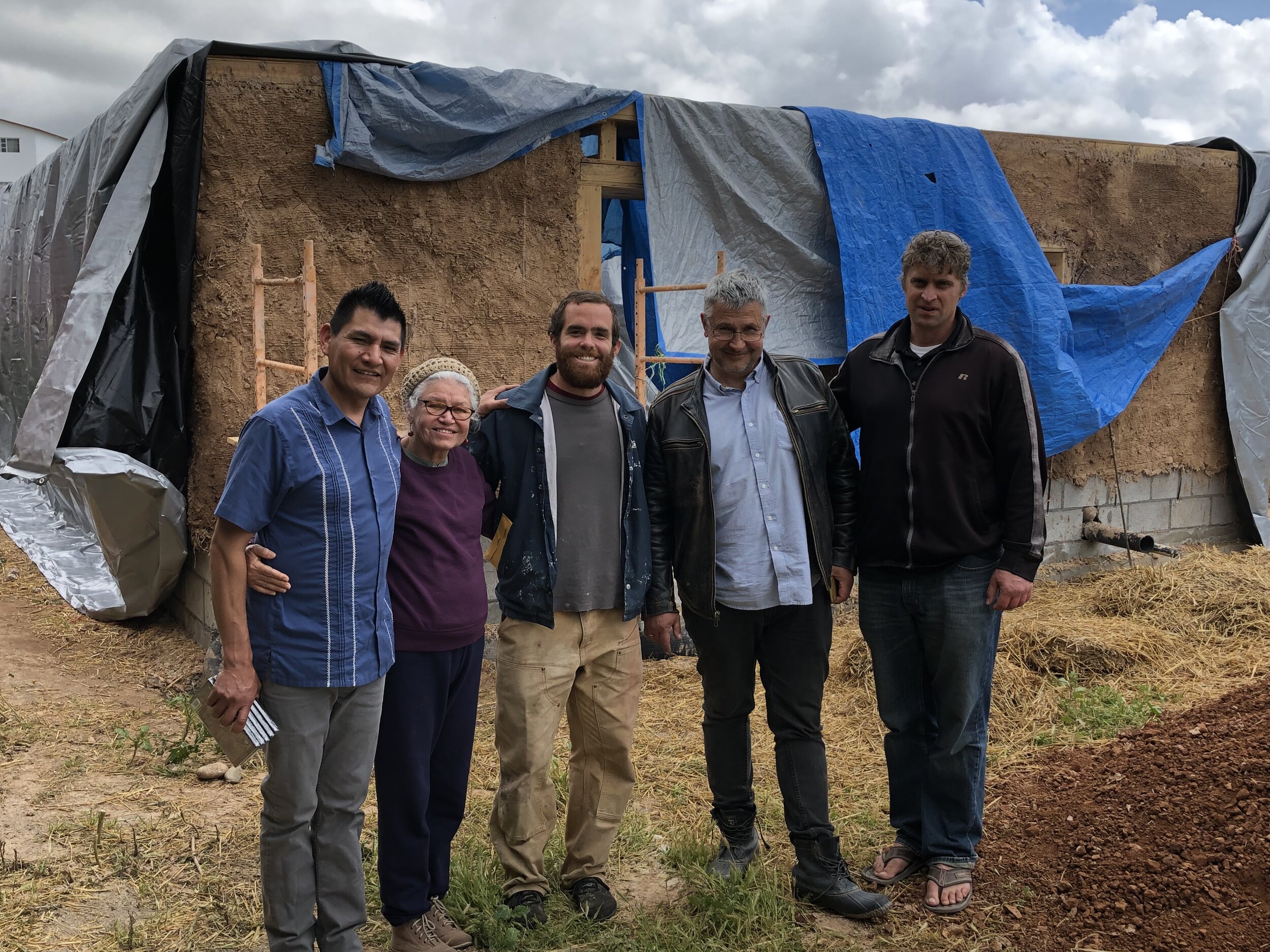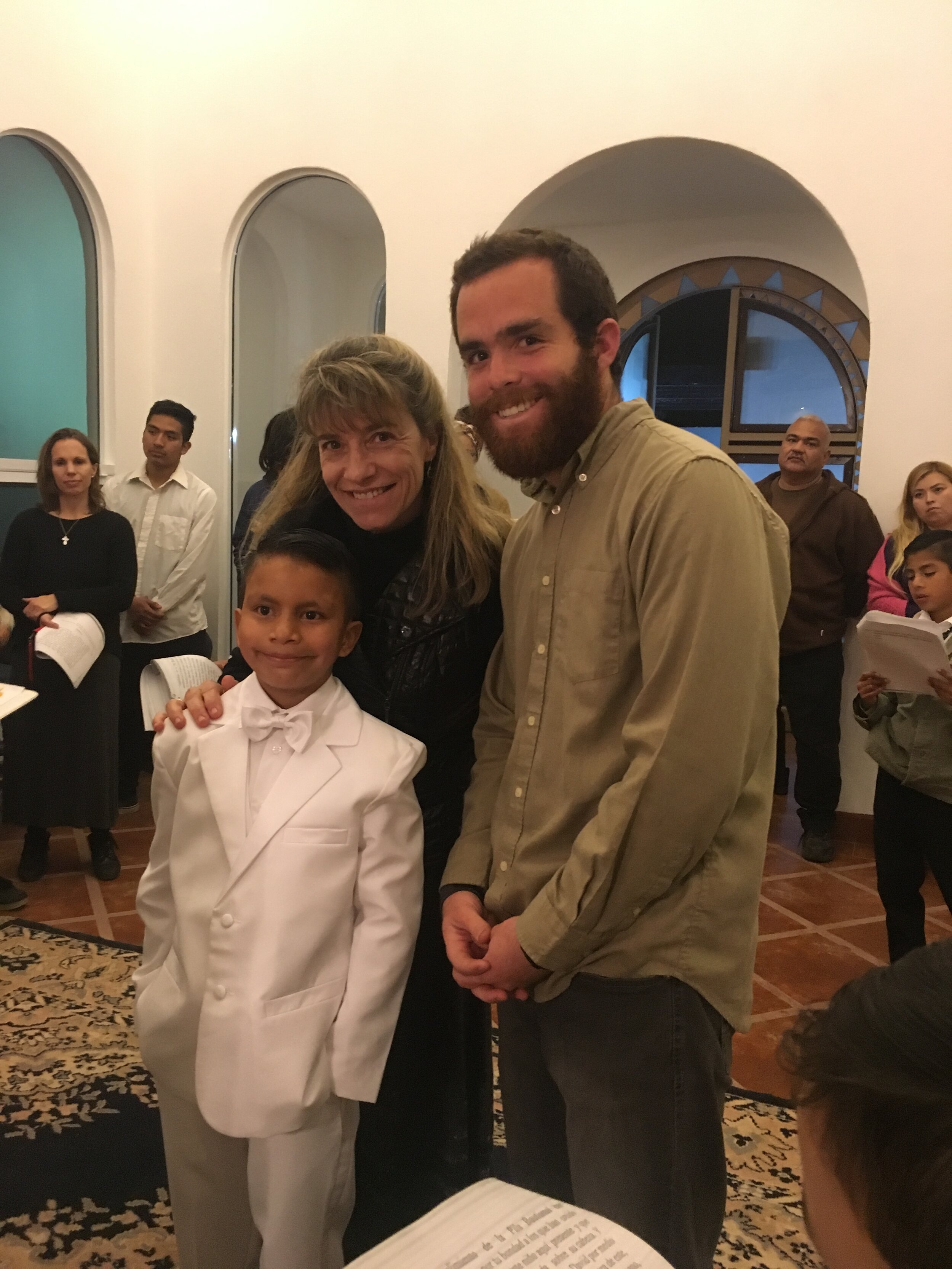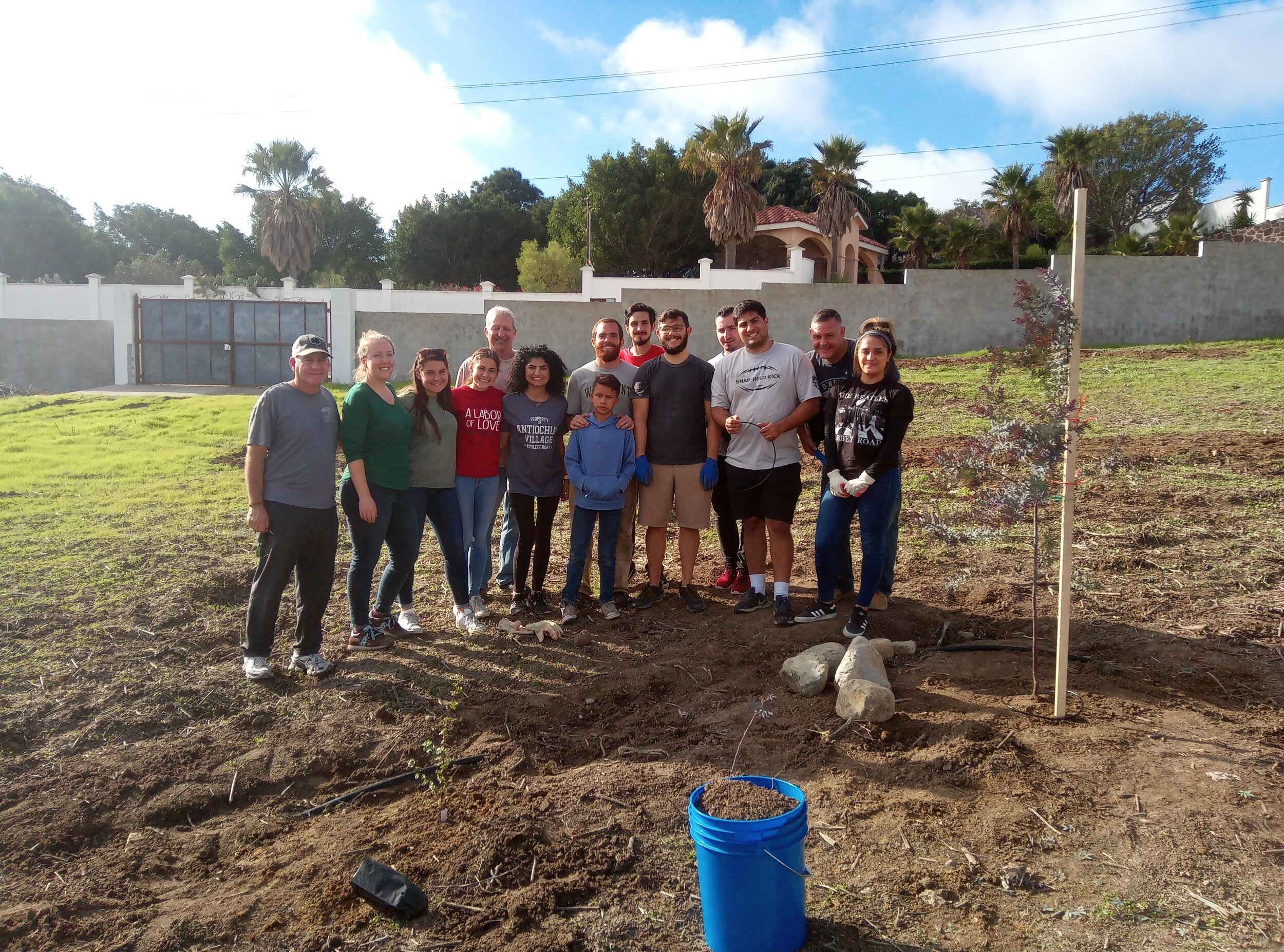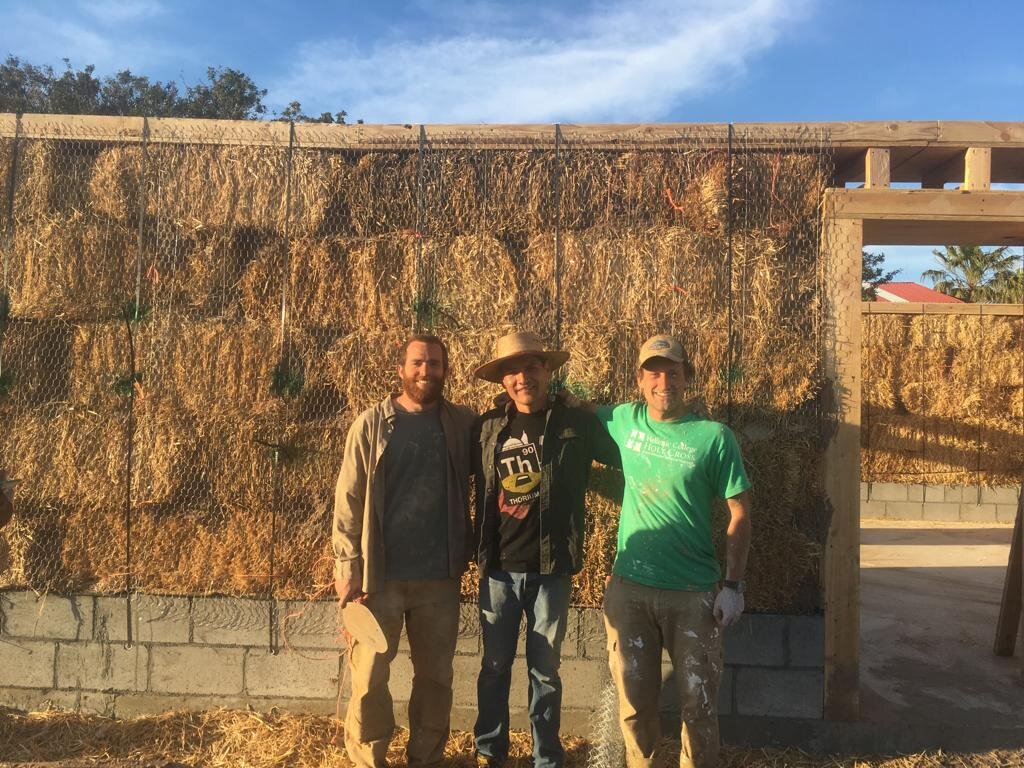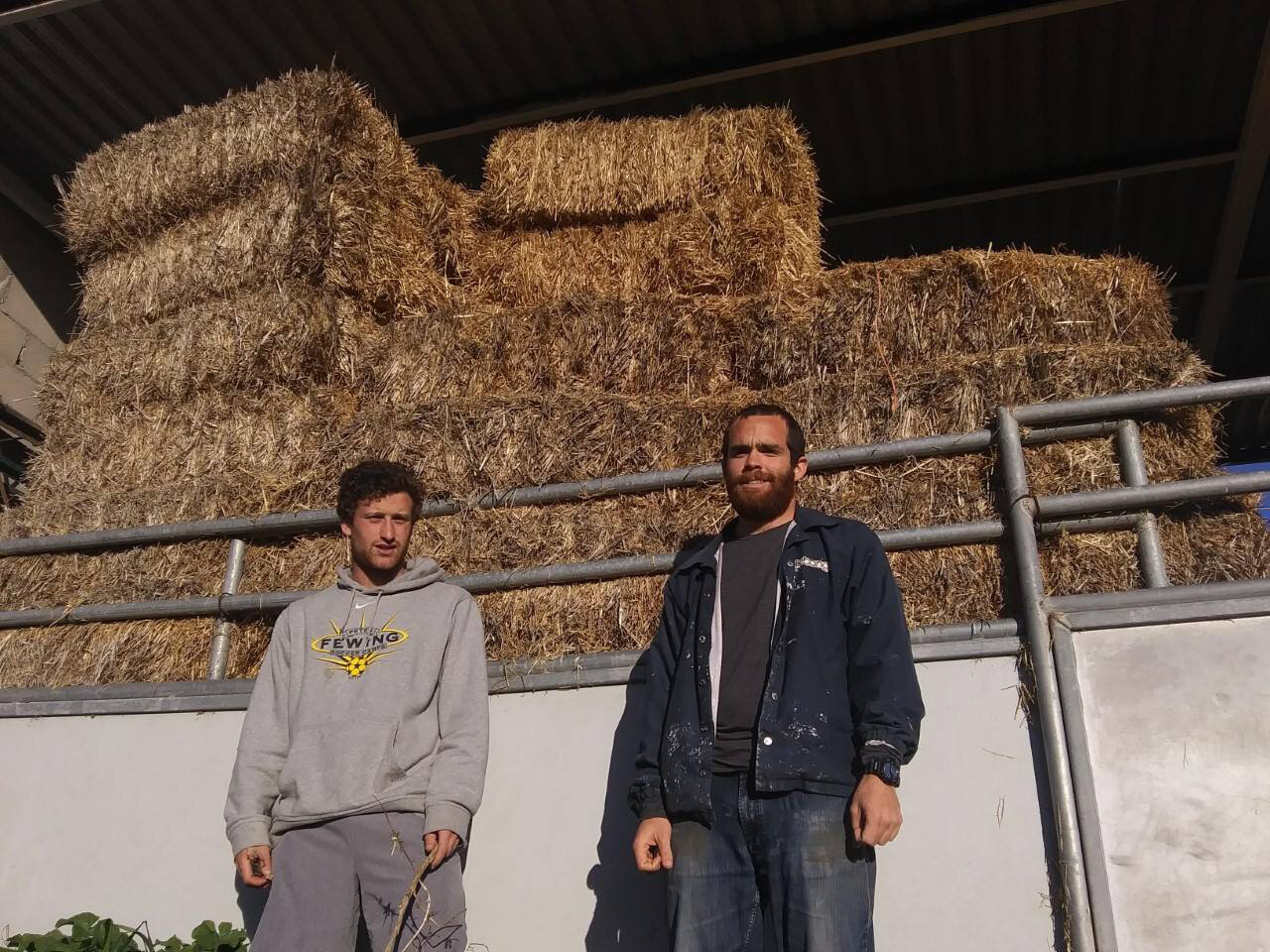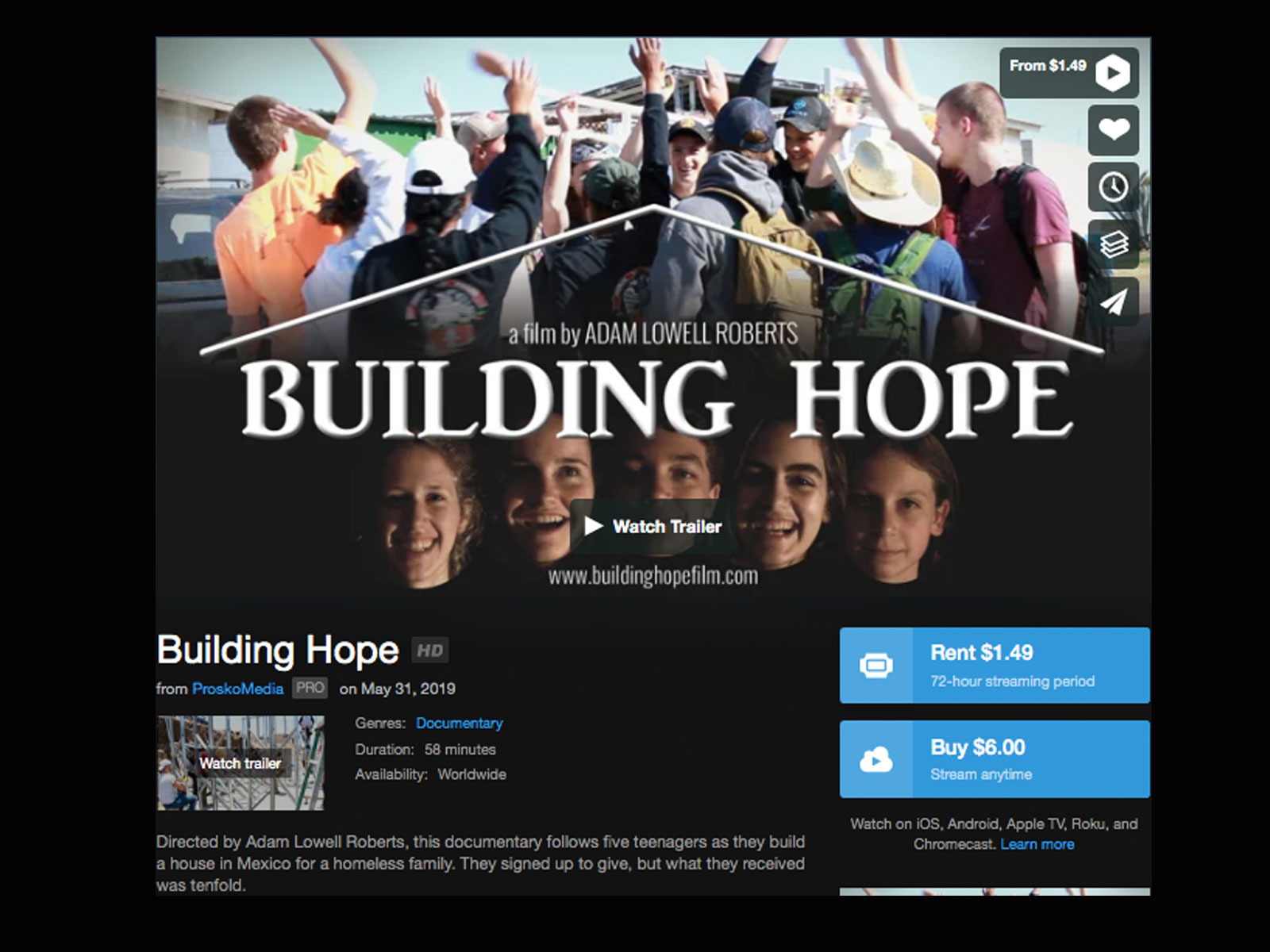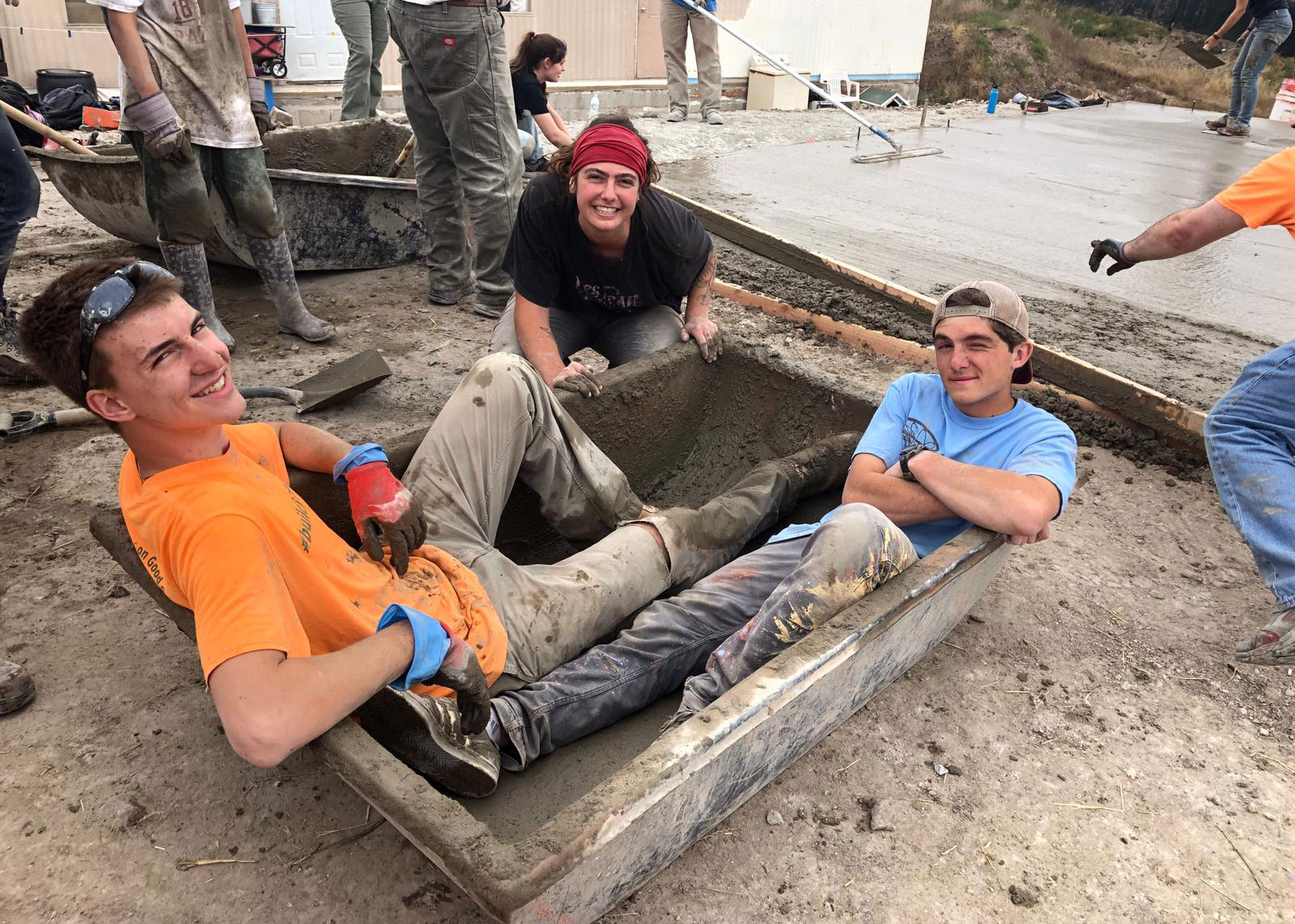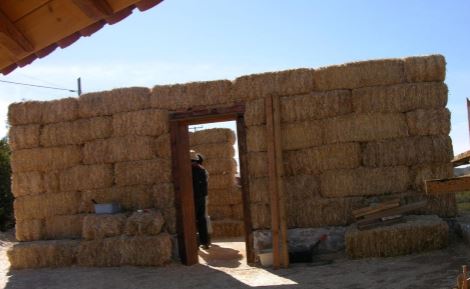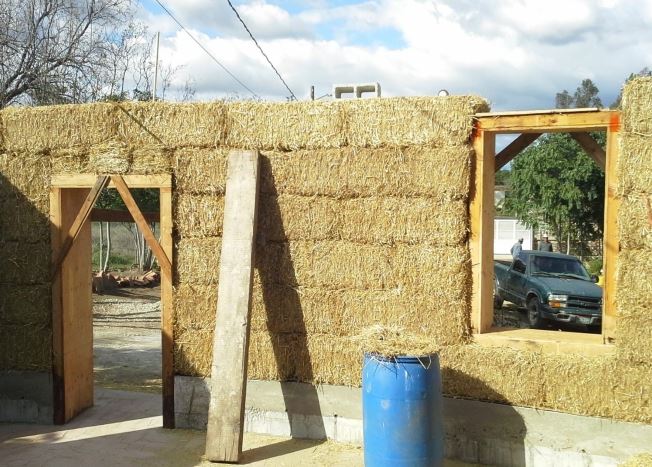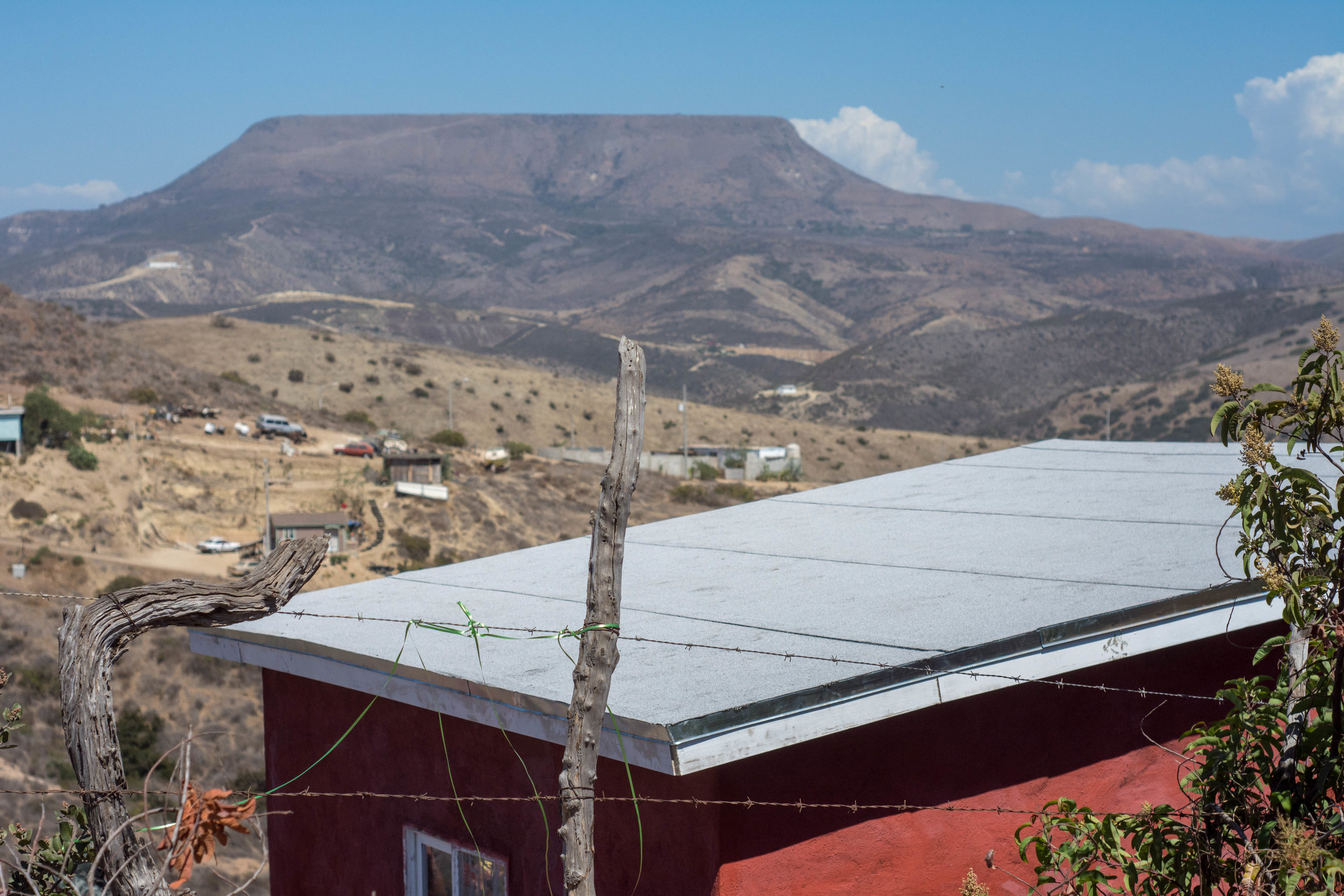Team Rubicon (a veteran service organization that uses disaster response to help reintegrate veterans to civilian life) has been working to reach a goal of rebuilding 100 homes in the Houston area. They are the ones who found this woman, and they will see the house through to completion. We spent the first couple of days working to get all of her belongings out of the house and sorted through. There was much that was able to be saved, but unfortunately, there was also a lot that had to be thrown away because of water and mold damage. Once everything was out and sorted through, we began the demolition process. Everything had to be stripped. Drywall, flooring, cabinets, everything had to be taken out and the house stripped down to the studs and concrete foundation. Team Rubicon has continued on with the rebuild process on this house. In a couple months, this woman will be able to come home to a new home, that will also now be better fortified to hold up against future hurricanes. Even though I won’t be there to be one of the people to welcome her into her new home, when we met on the first day of the rebuild, the gratitude that she showed us for the work we were doing forever changed my heart.
In this day and age, it is so easy to get caught up in the message of hate that is being spread over our communities, our nation, and our world. All we hear about is the bad and the ugly. It’s everywhere. It has instilled a sense of fear in many of us, and because of it we miss, or overlook, a lot of the good that is still going on. We miss out on the good that we can be doing, the love we can be spreading.
There is still so much good that is going on around us, we just need to open our eyes and our hearts to see it! This is so evident in the work that organizations like IOCC and Team Rubicon are doing to help families affected by disasters to rebuild their lives. It’s also evident in organizations like Project Mexico & St. Innocent Orphanage, who are working day in and day out to provide homes, not only to families in need, but also to orphan boys may not have families, or a place to really call home. We can easily be a part of these good things! By opening ourselves up to taking a week out of our busy lives to go on a Home Build (either in Mexico or in the United States), we not only start to see the good in the world once again, but we also start to become that same good we want to see in the world.
We’ve heard the commandment over and over again: “Love thy neighbor as yourself.” But often we struggle to fully understand what that might mean exactly: How do I love my neighbor as myself? Am I to give them everything I have? Do I even know who my neighbor is? What can I do to show love to my neighbor, even if they’re a complete stranger? Here, by giving up just a little of our time to volunteer with these different organizations, we find and easy and tangible way to fulfill this commandment and to share the love of Christ. Even to emulate the love of Christ. And even if homebuilding is not really your thing, the thought of sleeping in a tent in Mexico doesn’t sound appealing, challenge yourself to try to find something that may be more of your thing.
Both Project Mexico and IOCC have many different ways for people to be involved with their missions, and there are countless other organizations out there to get involved with as well. We should not be inactive in our faith when there is so much need in the world. We are called to action. We are called to go! Go and make disciples (Matthew 28:19), go and care for the needy, the widow, the orphan, the sick, the hungry (Matthew 25:34-40) Going does not have to mean flying halfway around the world. Going can mean walking next door to check on an elderly neighbor. It can mean going downtown to volunteer at a homeless shelter. It can mean running a canned food drive at your school or church. It can mean so many different things! Are you ready?
“What good is it, my brothers, if people claim to have faith but have no deeds? Can such faith save them? Suppose a brother or sister is without clothes and daily food. If one of you says to them, ‘Go in peace; keep warm and well fed,’ but does nothing about their physical needs, what good is it? In the same way, faith by itself, if it is not accompanied by action, is dead.” (James 2:14-17)
If you’d like more information on how you can answer the call to action and get involved with these ministries, you can check out their websites. Both have a lot of great information on the many different ways you can be involved in their missions.
International Orthodox Christian Charities (IOCC): www.iocc.org/take-action/volunteer-opportunities
Project Mexico & St. Innocent Orphanage: www.projectmexico.org/get-involved
If you have any questions, or would like to hear more about my time with Project Mexico and/or IOCC, feel free to contact me: faith@projectmexico.org
In Christ,
Faith Gunderson



